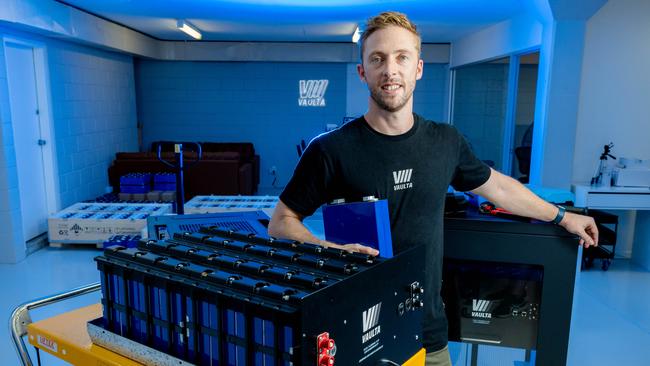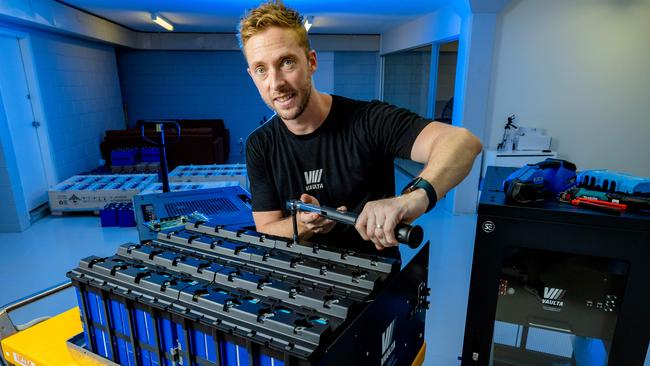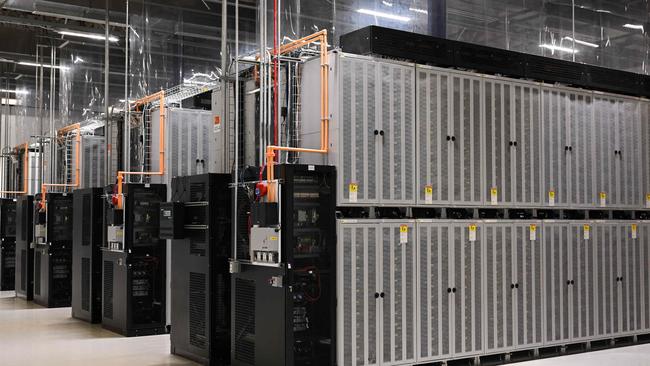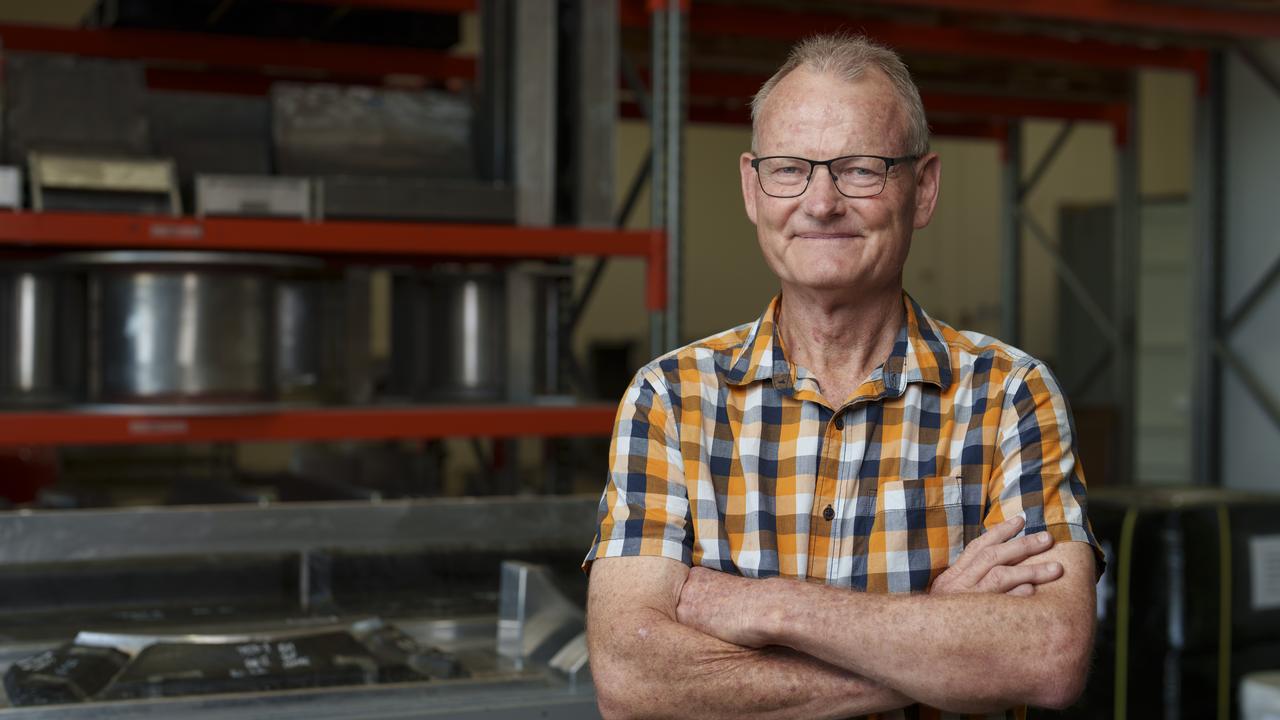Battery firm keeps powering on
A Brisbane startup believes it has found the solution to the looming environmental disaster created when lithium batteries reach the end of their life.

QBW
Don't miss out on the headlines from QBW. Followed categories will be added to My News.
The renewable energy revolution could be creating its own long-term environmental disaster with millions of lithium batteries that power everything from electric cars to homes set to reach the end of their life over the next few years.
Brisbane startup Vaulta however is working on a solution to the looming problem by designing battery casings that allow the fuel cells inside the batteries to be repaired or recycled rather than thrown away.
Vaulta founder Dominic Spooner, who worked as an industrial designer for more than a decade in the defence, aerospace and consumer goods sectors, said that opportunities for better battery design were often overlooked in favour of the status quo.
Mr Spooner said that while lithium-ion batteries were powering the renewable future, we could be setting ourselves up for another big environmental challenge because they were not designed to be repaired or recycled.
“By powering electric vehicles and enabling the storage of renewable energy, lithium-ion batteries have become indispensable and they are only going to become more commonplace,” said Mr Spooner. “However currently fewer than 5 per cent of lithium batteries are recycled.” That means huge waste and storage problems will emerge with many of these batteries already reaching the end of their lifecycle. “They will either need to be stored somewhere or disposed of,” he said. Vaulta battery casings have no-welds meaning they can be easily assembled and disassembled while fuel cells can be reused and recycled.
The Vaulta design ensures the inner components can be easily removed for recycling, breaking the traditional model that sees most batteries going into landfill.

“We make smaller, lighter, better performing battery modules that are easier to disassemble at the end of their first life to better enable battery re-use and recycling,” said Mr Spooner. “This ease of assembly and disassembly, cell replacement, reusing and recycling is enabled by Vaulta’s patented no-weld design, contrasting with current battery pack that involves welding, screwing and the gluing of cells, which is not only complex and expensive but leads to battery waste and increased landfill.” Currently 3,300 tons of lithium-ion battery waste is created each year in Australia and that is estimated to increase by 20 per cent annually.
There will be 2 million tonnes of waste globally by 2030, underscoring the need for a technology solution like the one developed by Vaulta.
Traditional batteries have the cells sealed within the case – meaning the failure of a single cell renders the whole battery useless.
In the case of one US brand the battery is sealed under patent. The Vaulta design allows for the replacement of single cells and also makes the removal of expired cells much easier.
The result is that the amount of battery waste going to landfill is greatly reduced. It also makes the process of obtaining cells for recycling of its precious minerals a simpler process.
Founded in 2020, Vaulta hit the ground running with research and design a strong focus from the start. “It was during the height of Covid-19 and I remember walking around the Botanical Gardens with a mask on while I held a meeting on the phone,” Spooner says.
The company’s technology was already attracting attention with Vaulta receiving an early acquisition offer early on that never eventuated. “It was pretty encouraging for a business so young to receive an unsolicited offer,” he says.

In 2021, Vaulta won a highly-coveted Federal Government grant to commercialise its low-cost, light weight battery casings for the electric vehicle market. With Australia rapidly developing new electric vehicles, the funding came as an opportune time for Vaulta. “The funding recognises the opportunities opened up by our world-first design,” said Mr Spooner. “It allows electric vehicle manufacturers to save money, time, weight and space in their vehicles while greatly increasing efficiencies.” Spooner said he saw the opportunity to reinvigorate battery casing design that had languished. Using a blend of graphene and polymer along with other composites there were significant improvements in weight, strength along with thermal and electrical conductivity.
Last year Vaulta was awarded the coveted sustainability award across all design disciplines among some 900 plus nominees at the Good Design Australia awards in Sydney. ASX-listed clean energy investment firm ReNu Energy completed the first $250,000 tranche of an investment worth up to $1 million in Vaulta.





